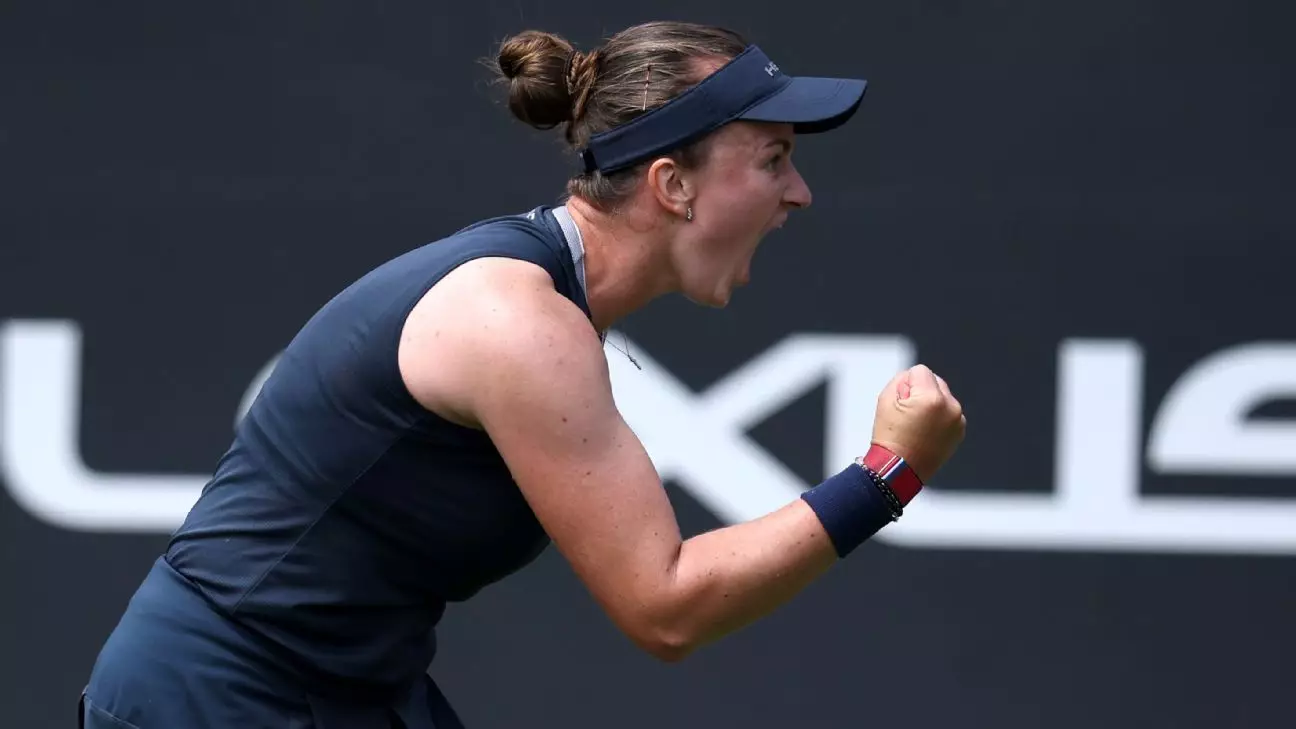Barbora Krejcikova’s remarkable performance at the Eastbourne WTA 250 event showcases the spirit of a true champion. Under intense pressure, the 29-year-old Wimbledon champion demonstrated that her on-court prowess transcends mere skill; it is bolstered by a mental resilience that often proves decisive in high-stakes situations. In her latest encounter against British player Jodie Burrage, Krejcikova faced adversity not only from her opponent but also from the encroaching limitations of a thigh strain.
This match was no leisurely stroll through the friendly gardens of Eastbourne. Krejcikova found herself down 0-40 on her serve at a critical moment—5-6 in the final set. Most players in her position might have crumbled, but Krejcikova turned the tide with steely focus, rallying to win 6-4, 4-6, 7-6 (3). Such resilience reflects her determination to overcome physical hurdles while maintaining technical superiority, reminding us that the mental game is just as crucial as physical conditioning.
Burrage’s Brave Challenge
Jodie Burrage, ranked 164th, displayed superb talent that posed genuine issues for the seasoned champion. She battled back fiercely after dropping the first set, securing a break of Krejcikova’s serve to level the match. An intriguing moment arose when an unusual point was awarded to Burrage after a Krejcikova forehand slipped through a hole in the net. This exemplified the unpredictable nature of tennis, where fortune and skill collide in dramatic fashion. Burrage didn’t just fight; she flourished under the spotlight against a champion, showcasing her potential for greatness and lighting up an otherwise routine tournament.
Burrage had her opportunities, with three match points, yet failed to capitalize—a stark reminder that in tennis, the difference between success and failure can be razor-thin. Her inability to convert these pivotal points helps underline the psychological demands inherent to the sport, particularly when the weight of expectation is inescapable.
The Path Forward for Krejcikova
Krejcikova’s journey at Eastbourne isn’t merely about winning matches; it represents her gradual return to form after battling injuries. Her previous victory against Harriet Dart, where she similarly saved match points, could signify a rebirth for the Czech player in a tumultuous 2025 season. Each match she wins not only progresses her in the tournament, but it also restores her confidence and reaffirms her status as a formidable competitor on the grass courts—a surface that requires unique skills and adaptability.
Reflecting on her experiences, Krejcikova noted the toughness of playing against British opponents steeped in the tradition of grass-court play. This insight is critical; the mental game is as much about understanding your opposition as it is about executing your own strategy. Her statements upon winning reveal a player who recognizes the hard work behind victory and does not take her success for granted.
In many ways, Krejcikova’s journey in Eastbourne is emblematic of the struggle all athletes face: battling through physical and psychological limitations to achieve greatness. As she marches into the quarterfinals, the tennis world watches in keen anticipation, eager to see whether Krejcikova will cement her recovery with a title run or if the resilient spirit of contenders like Burrage will shine even brighter. The tournament in Eastbourne is shaping up to be a pivotal chapter in Krejcikova’s comeback narrative, and one can only hope this fierce competitor continues to thrive in the face of challenges.

